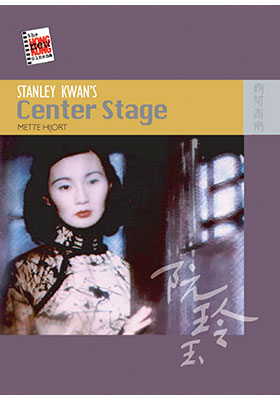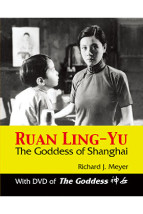Stanley Kwan’s Center Stage
(關錦鵬的《阮玲玉》)
ISBN : 978-962-209-791-9
April 2006
158 pages, 5.5″ x 7.5″
- HK$195.00
Ebooks
Center Stage is widely recognized as a classic of the New Hong Kong cinema. The film’s status has until now been attributed to the fascinating way in which Kwan combines a reconstruction of Ruan Lingyu’s tragic life as a Chinese film star with sequences documenting the making of his film.
This reflexive dimension is typically held to show that Kwan endorses a broadly postmodernist conception of historical knowledge as essentially unattainable. Mette Hjort takes issue with the standard reading of Kwan’s classic film. She argues rather that the Hong Kong filmmaker, while recognizing the fallibility of historical knowledge, is committed to the ideal of creating the best available account of Ruan’s story.
Whereas many film scholars regard Center Stage as an example of the Hong Kong nostalgia film, Hjort shows that it is better understood as a heritage film that provides a precious cultural resource for rethinking relations between Hong Kong and China. She argues that Kwan’s film is ultimately a condemnation of the kind of authoritarian and hierarchical modes of social organization that fuel mean-spirited gossip and the scapegoating that it entails. Kwan’s film emerges as a passionate defense of an ever-relevant egalitarian culture characterized by a sense of deep horizontal camaraderie and mutuality.
“With Mette Hjort’s new book, Stanley Kwan finally gets the sustained and discerning critical regard in English he so justly deserves. Hjort understands Kwan’s heroic gamble with history as not simply a self-reflexive exercise, but as a profoundly moving response to the tragedies of modern Chinese and Hong Kong history, among them the great tragedy of Chinese cinema’s greatest star.” —James Schamus, scriptwriter and producer




